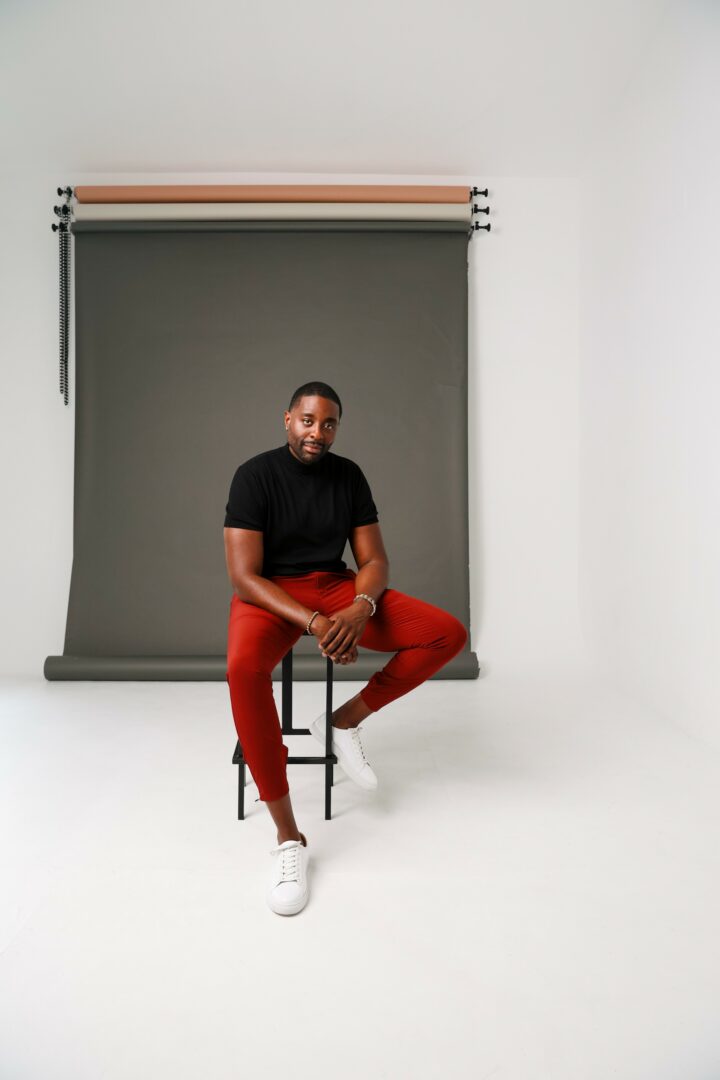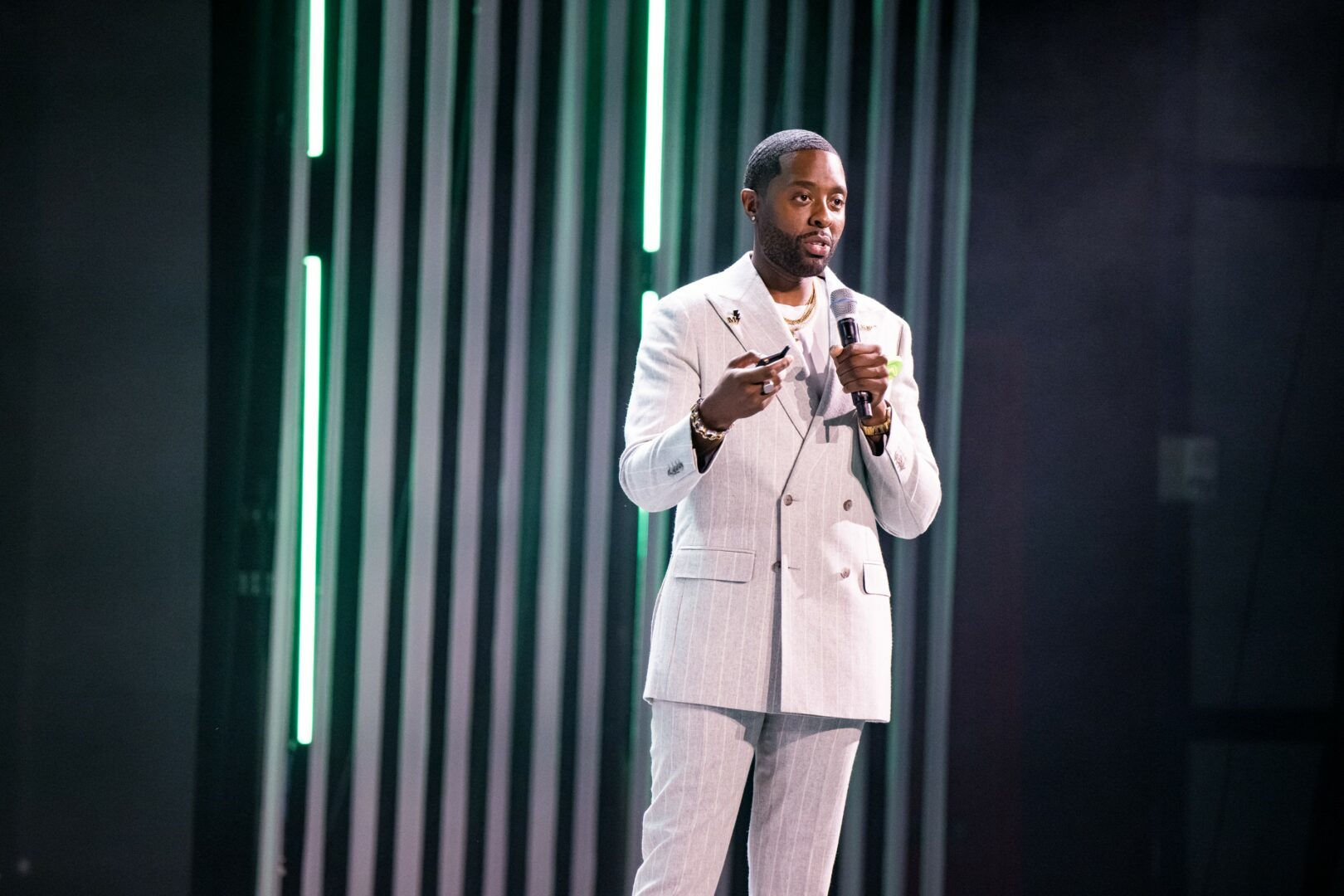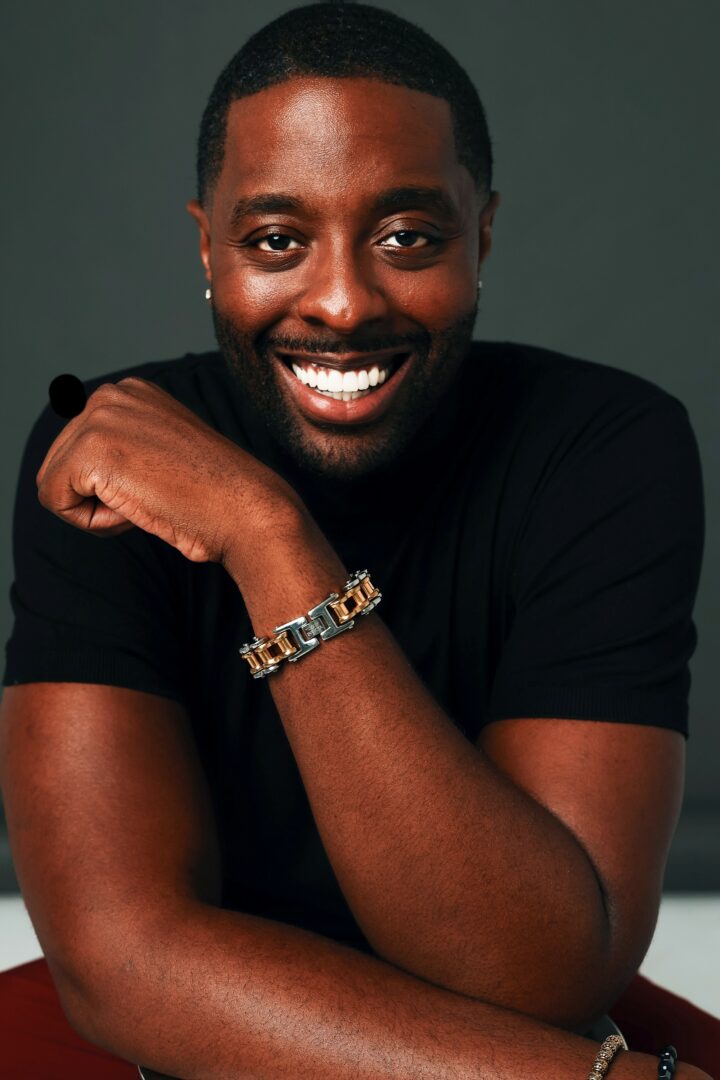Alright – so today we’ve got the honor of introducing you to Matthew Robinson. We think you’ll enjoy our conversation, we’ve shared it below.
Matthew, so good to have you with us today. We’ve got so much planned, so let’s jump right into it. We live in such a diverse world, and in many ways the world is getting better and more understanding but it’s far from perfect. There are so many times where folks find themselves in rooms or situations where they are the only ones that look like them – that might mean being the only woman of color in the room or the only person who grew up in a certain environment etc. Can you talk to us about how you’ve managed to thrive even in situations where you were the only one in the room?
Navigating spaces where I am the only one who looks like me has been both a challenge and an opportunity. Early in my career, I realized that visibility comes with both weight and power—what you do with that visibility determines your impact. I’ve learned that effectiveness in these situations isn’t just about proving yourself; it’s about transforming the space so that those who follow won’t face the same barriers.
One of the key lessons I’ve embraced is the power of preparation and presence. When you enter a room as the only, assumptions are made—about your capability, knowledge, and even your right to be there. I counter this by ensuring that when I speak, my words carry undeniable weight. I study the dynamics, the decision-makers, and the unspoken rules so that my contributions become impossible to dismiss. This approach hasn’t just earned me respect—it’s actively shifted perceptions about leadership and who deserves a seat at the table.
I also prioritize authenticity, though I’ve learned that it’s a spectrum. At times, I adapt to navigate environments where certain cultural markers aren’t understood or valued, but I never erase myself in the process. My lived experiences and unique perspective are assets, not afterthoughts—because it’s precisely that difference that drives innovation and meaningful change. Success in these spaces isn’t about blending in; it’s about proving that diverse viewpoints are essential for pushing boundaries and creating better outcomes.
Ultimately, I believe in creating space, not just occupying it. Being the only one means carrying the responsibility to ensure I won’t be the last. Whether through mentorship, advocating for inclusive hiring practices, or using my platform to amplify underrepresented voices, I measure my success not just by my own achievements but by how many others get the opportunity to thrive after me.
Being the only in the room has taught me that true leadership isn’t about surviving in spaces that weren’t designed for you—it’s about thriving, transforming those spaces, and building pathways for others to follow.

Appreciate the insights and wisdom. Before we dig deeper and ask you about the skills that matter and more, maybe you can tell our readers about yourself?
I’m a UX design leader, storyteller, and strategist focused on shaping the future of technology and digital experiences. My work sits at the intersection of design, innovation, and culture and I’m not just here to make things look good. I’m reimagining how technology serves people and society. Tech should work for us, not the other way around, and I’m driven by the challenge of creating digital experiences that are intuitive, accessible, and deeply human-centered.
The most exciting part of what I do is that magical moment when technology becomes invisible and the human experience takes center stage. When a digital experience is so seamless you forget you’re interacting with tech at all…that’s the sweet spot I’m constantly pushing toward.
Beyond my work in tech, I’ve built a platform around mentorship, thought leadership, and public speaking. I break down complex ideas on design, AI, and the future of work at conferences like AfroTech and through media platforms that make these crucial conversations accessible to everyone. The future of tech is being written right now, and we need more diverse voices shaping what comes next.
I recently launched my YouTube series, where I cut through the noise on technology, culture, and social impact. No jargon, no gatekeeping, just real conversations about how innovation is reshaping our world and what that means for you. These aren’t surface-level takes. I go deep into the ownership structures, power dynamics, and cultural contexts that most tech conversations ignore.
At the same time, I’ve always seen personal style as an extension of identity and presence—especially for Black men in professional and creative spaces. Whether it’s what you wear in the boardroom, on stage, or in everyday life, style is a form of communication. Through my past collaborations, including my campaign with Twillory, I’ve explored how fashion plays a role in confidence, intentionality, and showing up as your most authentic self. As I expand my platform, I’m open to partnerships in fashion, grooming, and lifestyle—especially with brands that understand the intersection of tech, culture, and style.
Looking ahead, I’m exploring brand partnerships and media opportunities with organizations ready to challenge conventional thinking about who technology is for and how it should work. I’m not here to maintain the status quo—I’m here to push boundaries and ask the uncomfortable questions that lead to better solutions.
For Bold Journey readers, know this: the tech you use every day is shaping your life in ways you might not even realize. Who designs it? Who owns it? Who benefits from it? These are the questions that drive my work. Want to be part of a future where technology genuinely empowers rather than exploits? Let’s connect—because there’s still so much more to reimagine together.

If you had to pick three qualities that are most important to develop, which three would you say matter most?
1. Adaptability – The game is always changing; you have to move with it.
The only constant in tech, business, and life is change. Whether it’s a shift in industry trends, team structures, or personal ambitions, the ability to adapt is what keeps you relevant. Early in my career, I clung to rigid plans, but I learned that the most successful people aren’t those who predict the future—they’re the ones who respond to the present best. Advice: Get comfortable with uncertainty. Treat your career like a series of experiments rather than a fixed path. When something isn’t working, pivot quickly. View challenges as valuable data points rather than failures. The people who thrive in today’s landscape aren’t necessarily the most talented, but those who can rapidly adjust when the ground shifts beneath them.
2. Strategic Thinking – Don’t just work hard—work in the right direction.
A lot of people hustle, but few do so with clarity. I’ve seen firsthand how thinking beyond the immediate task—considering the long-term impact, power dynamics, and bigger picture—changes everything. Whether it’s navigating corporate spaces, building a brand, or launching a new initiative, strategy wins over sheer effort every time. Advice: Learn to zoom out. Before diving into execution, ask yourself: What am I really trying to achieve here? How does this connect to my bigger goal? Who are the key stakeholders, and what do they value? Develop the habit of questioning assumptions and challenging the status quo. The better you are at answering these questions, the less time you’ll waste on things that ultimately don’t matter.
3. Storytelling & Communication – The best ideas don’t always win—the best storytellers do.
You can be the most talented person in the room, but if you can’t communicate your ideas clearly and persuasively, your impact is limited. Whether it’s presenting to executives, advocating for a new initiative, or even writing a compelling social media post, storytelling is what moves people to action. Advice: Work on how you deliver your message. Study great communicators in your field. Practice simplifying complex ideas into digestible narratives. Learn to read the room and tailor your message to different audiences. A well-told story with average ideas will almost always outperform brilliant ideas poorly communicated. This isn’t just about public speaking—it’s about making your vision clear to others in ways that inspire them to follow your lead.
Mastering these three areas has shaped my career more than any technical skill. For anyone early in their journey, focusing on adaptability, strategic thinking, and powerful communication will help you stand out, stay ahead, and create the kind of impact that lasts long after the technology of today becomes obsolete.

Do you think it’s better to go all in on our strengths or to try to be more well-rounded by investing effort on improving areas you aren’t as strong in?
I believe in doubling down on your strengths while being strategic about weaknesses. Mastery isn’t built by spreading yourself thin trying to be good at everything—it comes from leaning into what makes you exceptional. The most successful people I’ve met aren’t well-rounded; they’re extraordinarily good at a few things that truly matter.
That said, self-awareness is crucial. I think of it like this: know which weaknesses are worth improving and which ones you can delegate, automate, or simply avoid. If a weakness actively blocks you from leveraging your strengths, address it. If it’s just something you’re not naturally gifted at but isn’t critical to your growth, there’s no need to force it.
Early in my career, I spent valuable time trying to be competent across the board, working on skills that weren’t aligned with my natural talents. But when I finally started investing more heavily in what I naturally excelled at—storytelling, strategy, and digital experience design—I saw a massive shift in how I was valued and the impact I could create.
For example, public speaking wasn’t always second nature to me. I could have avoided it altogether and stuck to written content, but I recognized that speaking was a powerful vehicle for amplifying my strengths. Instead of trying to become the most technically polished speaker, I worked on being compelling and authentic on stage—which aligned with my storytelling ability rather than forcing me to become something I wasn’t.
I’ve found it most effective to think of your career like a startup—you invest in your unique value proposition, not in trying to be everything to everyone. Lean into what makes you exceptional, sharpen it relentlessly, and strategically refine only the areas that unlock even more of that potential. For everything else, surround yourself with people whose strengths complement your weaknesses.
That’s how you create real leverage and lasting impact.
Contact Info:
- Website: https://www.mattvandrick.com
- Instagram: @mattvandrick
- Facebook: https://www.facebook.com/people/Matt-Vandrick/61562044165229/
- Youtube: https://www.youtube.com/@mattvandrick
- Other: TikTok: @mattvandrick
Substack: https://curiousandinspired.substack.com/

so if you or someone you know deserves recognition please let us know here.




